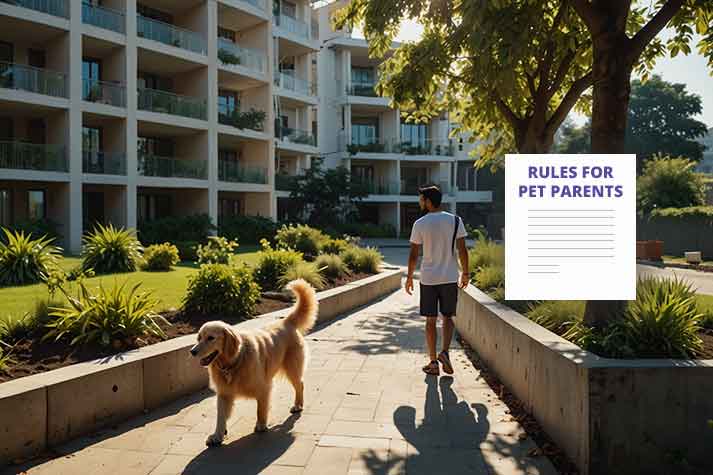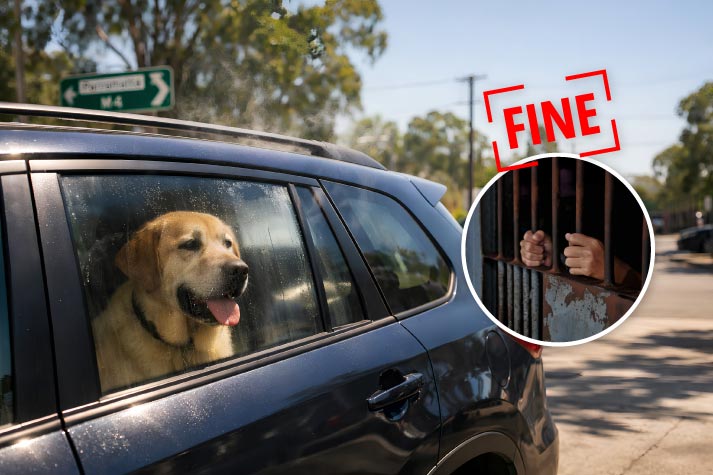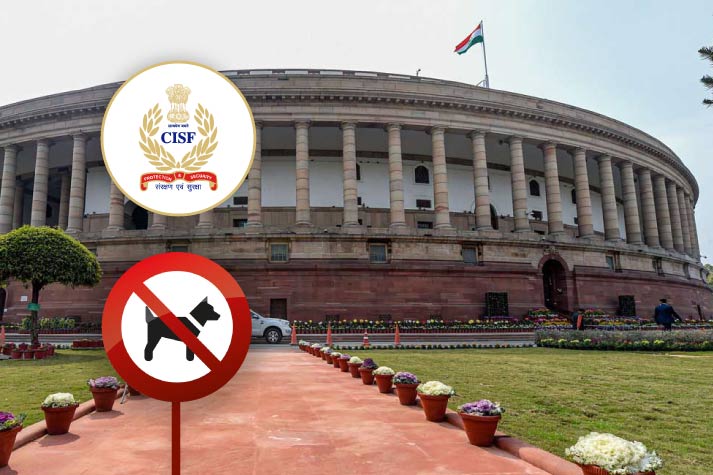
30 May
Maharashtra Mandates Pet Policies for Housing Societies Amid Growing Tensions
Tensions between pet lovers and those without animals continue to simmer in many housing societies. From disputes over cleanliness to fears about safety, the gap between pet owners and non-pet owners is often wide. “Pet owners often feel their animals deserve equal freedom within the premises, but for many others, especially those uneasy around animals, this can be a real concern,” says Ravi Shinde, former secretary of a Seawoods housing society. “Some pet parents act responsibly — they avoid crowded elevators and take their pets outside the complex for walks.”
But not everyone shows the same level of consideration. “Some pet owners or their dog walkers let pets roam freely in common areas, brushing aside concerns with, ‘Don’t worry, she’s harmless.’ But that’s hardly comforting, especially after a recent incident where a girl was scratched by a dog,” shares Bhavani Shankar, a resident from Pune.
In Mulund, Nishat Jain voices a common frustration: “My kids can’t play on the lawn, and I can’t walk barefoot — the space is often soiled by pets and no one cleans up. Though pet owners are a minority here, their actions affect the majority. The issue isn’t with the animals, but with a few owners who refuse to take responsibility, which leads to constant arguments on the society’s WhatsApp group.”
What prompted RWA rules for pets in Maharashtra?
While the debate between pet owners and others is not new, a shocking discovery in February 2025 gave the issue new urgency. Authorities found more than 300 cats being kept inside a 3-BHK flat in Marvel Bounty Society, Hadapsar. Following SPCA’s intervention, the cats were safely relocated to a shelter in Kharadi, Pune. The incident intensified calls for stricter and clearer pet-related policies in residential societies.
Pets in housing society: Dog license must in Navi Mumbai
In Navi Mumbai, the municipal corporation has taken a firm step by mandating dog licenses for all pet parents within its jurisdiction. As per the recently reinforced NMMC Dog Tax Regulation of 1993, keeping a dog without a license now carries heavy penalties. Pet parents can apply online via the official NMMC website https://www.nmmc.gov.in/ by heading to the citizen services section under the health department tab.
Pet policy for society
The rise in pet ownership and community members feeding strays has led to rising friction within residential societies. To strike a balance, the Maharashtra state cooperatives department has asked housing societies to implement a formal pet policy.
The directive encourages Resident Welfare Associations (RWAs) and Apartment Owners’ Associations to protect the rights of non-pet owners while remaining in alignment with the 2015 guidelines set by the Animal Welfare Board of India (AWBI). These guidelines emphasise responsible pet parenting and safeguarding community harmony. The policy must neither discriminate against pets nor infringe on the legal rights of their owners, while also addressing legitimate concerns of fellow residents.
Housing societies’ rules for pets: Key points
Based on the Animal Welfare Board of India (AWBI) Guidelines, 2015, these are key considerations RWAs should account for when formulating society-level pet policies:
- Pet dog ban in society - RWAs cannot enforce a blanket ban on pet dogs, even with majority support. Nor can they restrict specific breeds or sizes of dogs, or cite barking as justification for bans. However, pets deemed illegal under the Cruelty to Animals Act, 1960, including wild or dangerous animals, cannot be kept within societies.
- Lift usage by pet dogs in society - RWAs have no legal standing to ban pets from using elevators or to impose additional charges on pet parents. That said, pet owners are encouraged to be courteous — if more than one lift is available, they should be open to using alternate options when practical.
- Access to society parks - While societies are not required to grant pets access to parks, completely denying them space for exercise can lead to behavioural problems, which impacts all residents. AWBI recommends RWAs consult residents and establish specific hours for pet walking, which should then be formalised during a general body meeting.
- Use of leashes/muzzles by pet owners- Pets must always be leashed in shared spaces for the safety of both the pet and residents. While leashing is mandatory, muzzles are not legally required. Negligence by pet owners that results in harm or risk can be reported, and RWAs or residents may pursue penalties under relevant laws.





AUTHOR’S BIO
Carry My Pet
Passionate pet enthusiasts and globetrotters, dedicated to easing furry friends' journeys worldwide. Penning tales of compassion at CarryMyPet, where every relocation is a tail-wagging adventure.